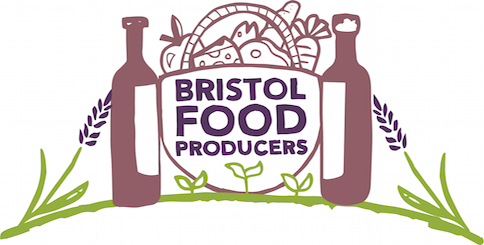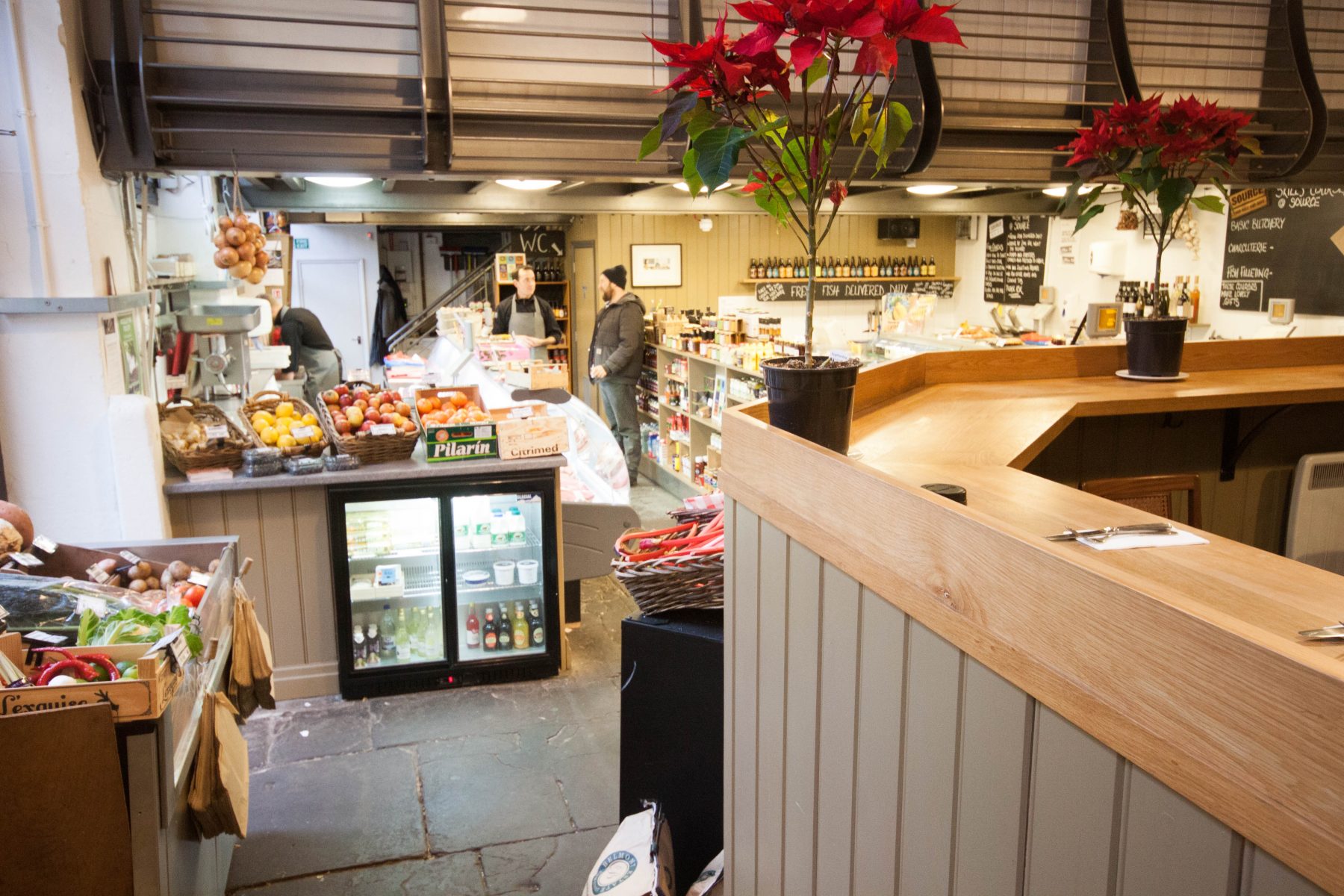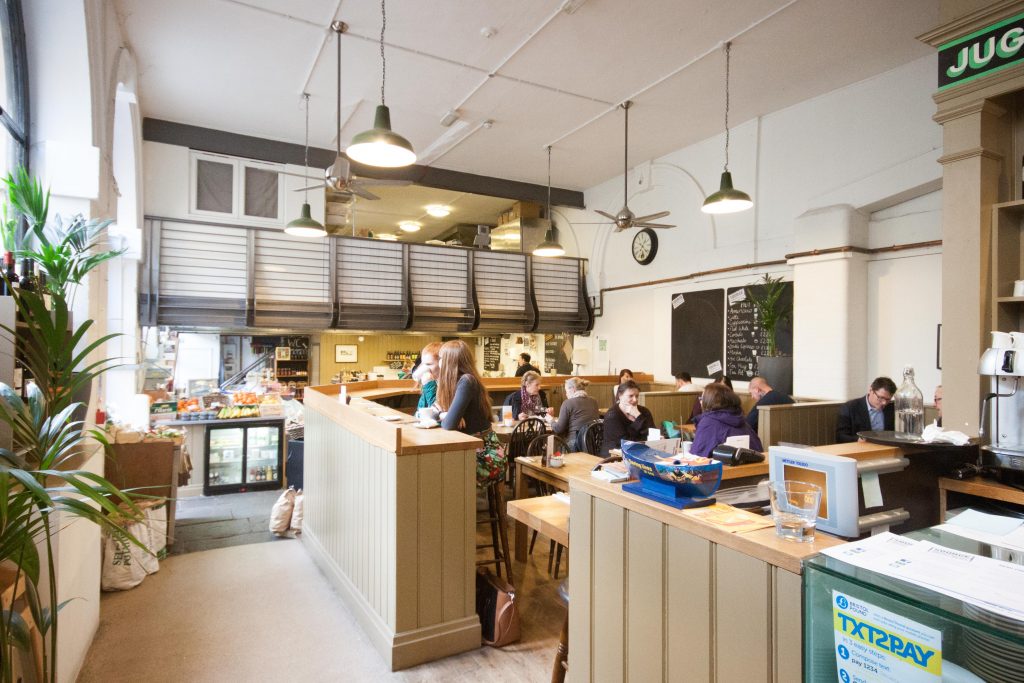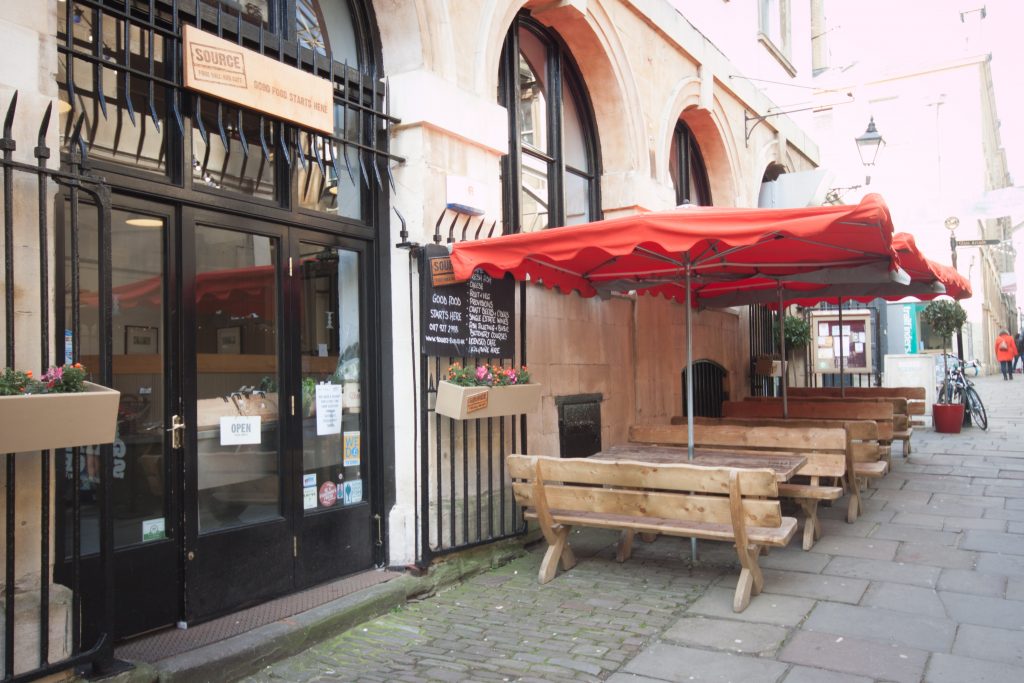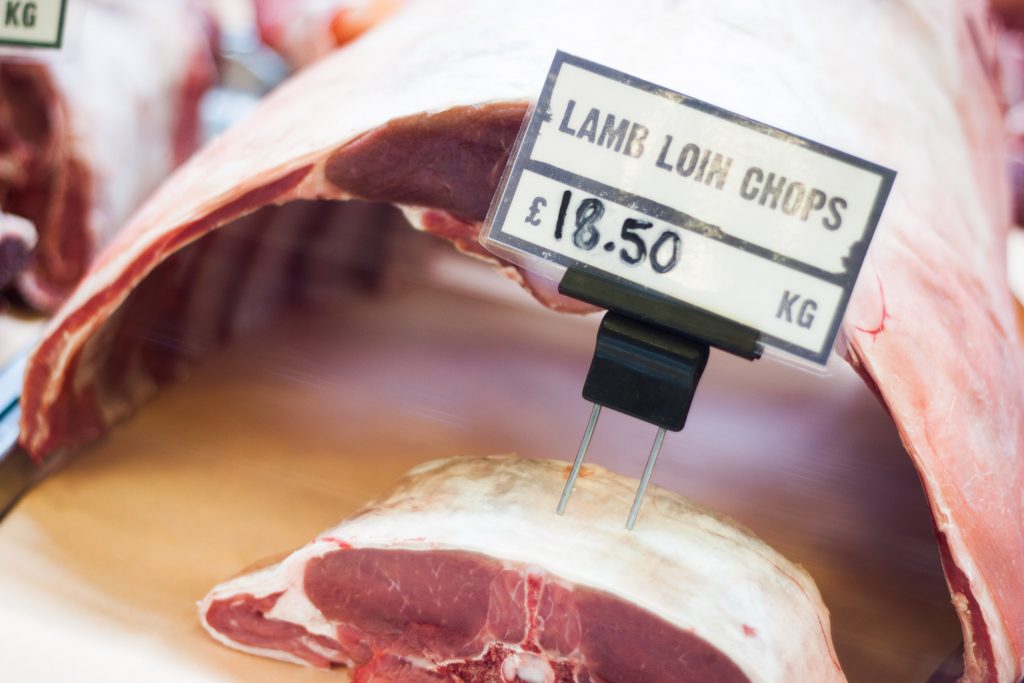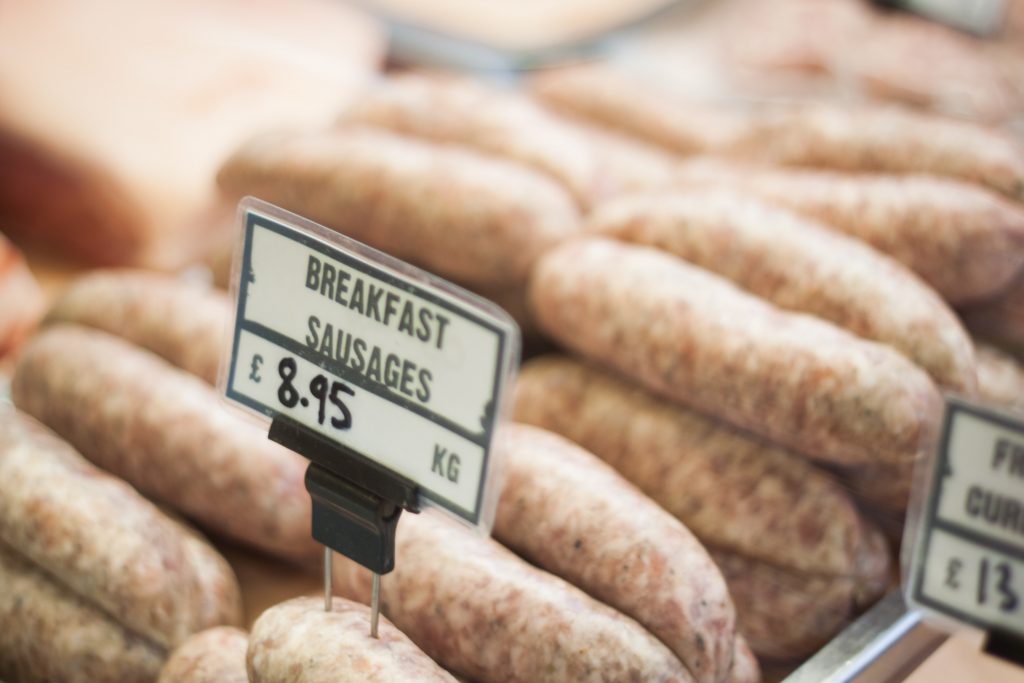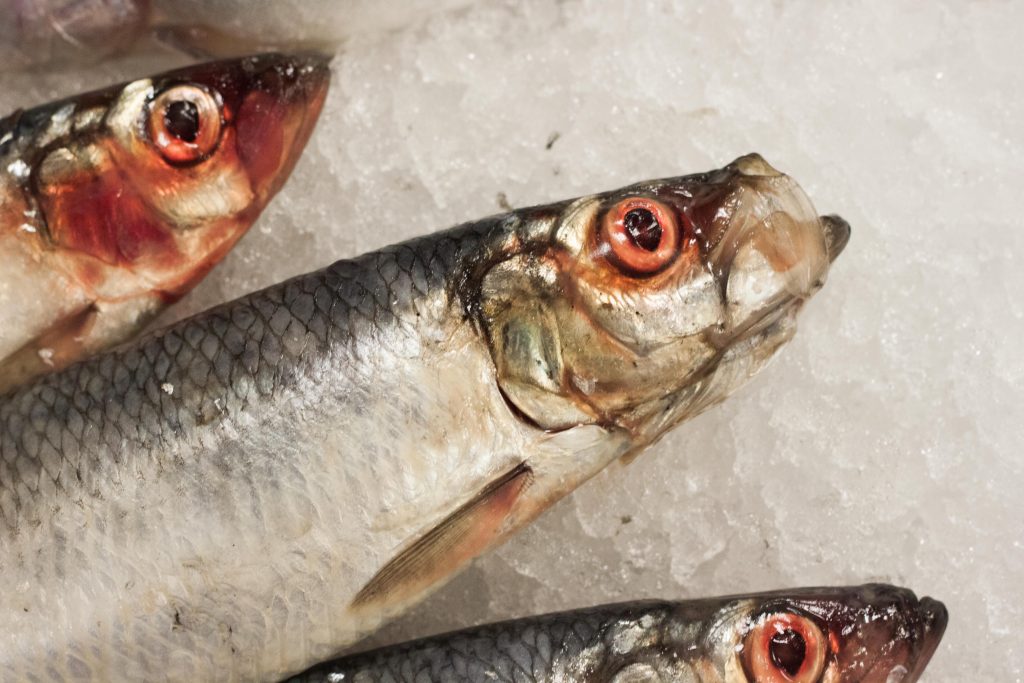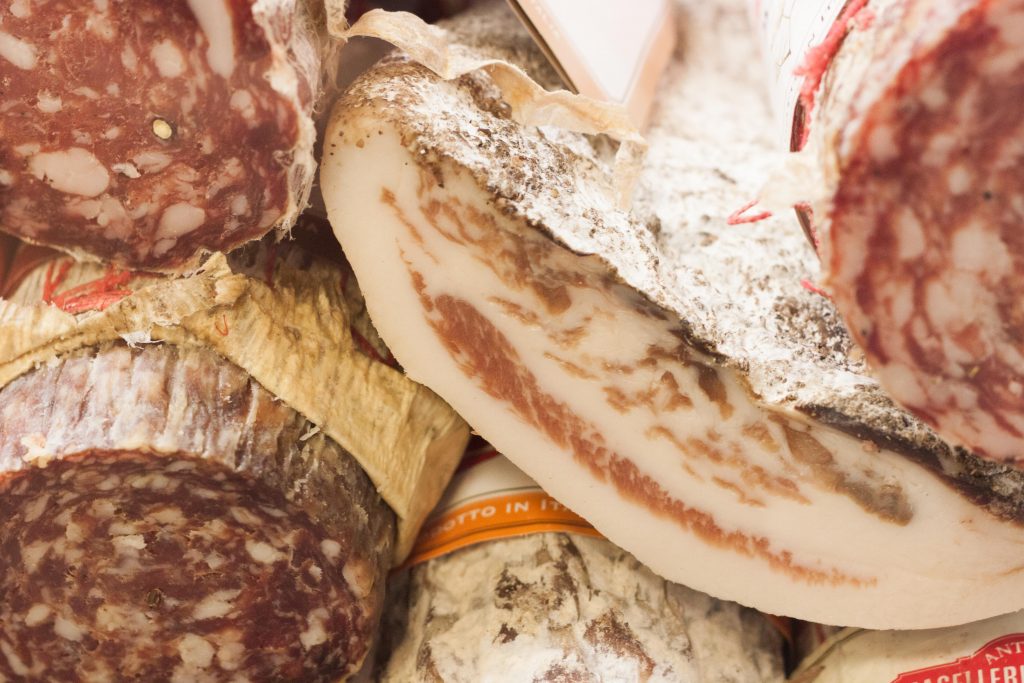This post has been reposted from The Locavore website with permission:
I stopped shopping in supermarkets several years ago. I had a multitude of reasons, including the poor deal they give suppliers, lack of provenance information about produce, the difficulties faced by small independent businesses, and the fact that I simply grew to hate the experience. Now, I manage to buy a good chunk of produce direct from farmers and local producers, but I still need to go to shops to buy food a couple of days a week. So if I don’t go to supermarkets, where do I go?
A few months ago I started working in the Corn Exchange in the centre of Bristol. My lunchtime wanderings led me past the Source Food Hall and Cafe, and as soon as I popped my head inside, I knew it was going to be a regular haunt. A huge butchery counter lines one side of the shop, with fish and cheese along the other side. Dried goods, vegetables, bread, freshly baked treats burst from every surface. A cafe occupies the top end of the space, with tempting smells emanating from the kitchen. In short, it’s food lover’s heaven.
Source started back in 2009, when Joe, Ross and Liz did a management buy out of a business called Taste. Originally a wholesale company, Taste had expanded into the retail market, but when the financial crisis hit, the business went into administration. All three of them were working at Taste at the time, and decided to give it a go themselves. 7 years later and Source has become an integral part of the food scene in Bristol, and I swung by the cafe one afternoon to chat with Joe about what makes Source different.
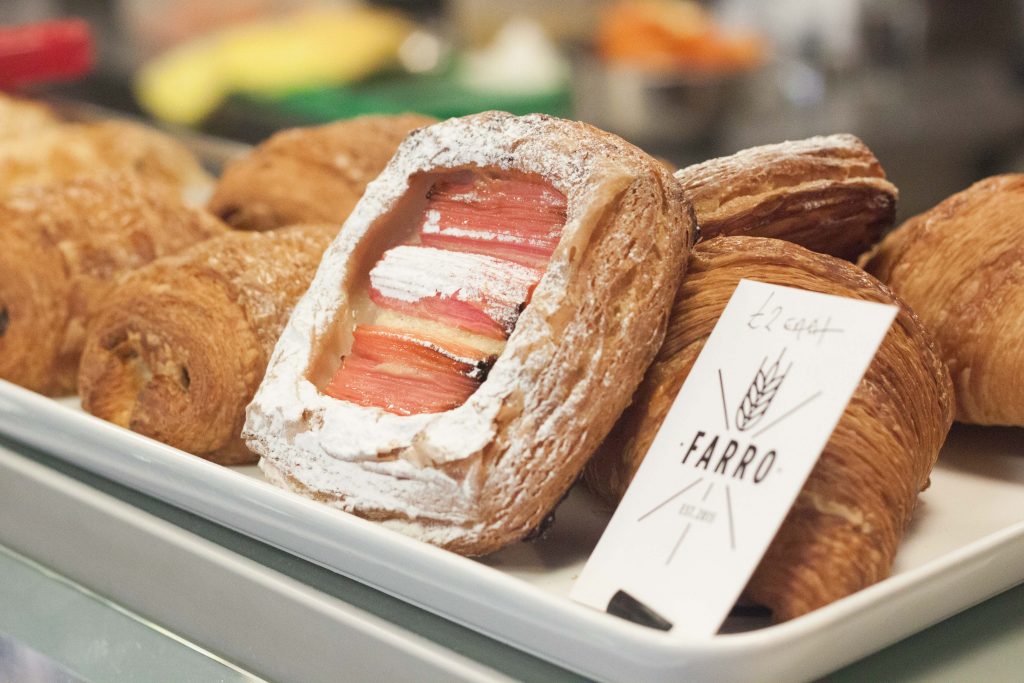
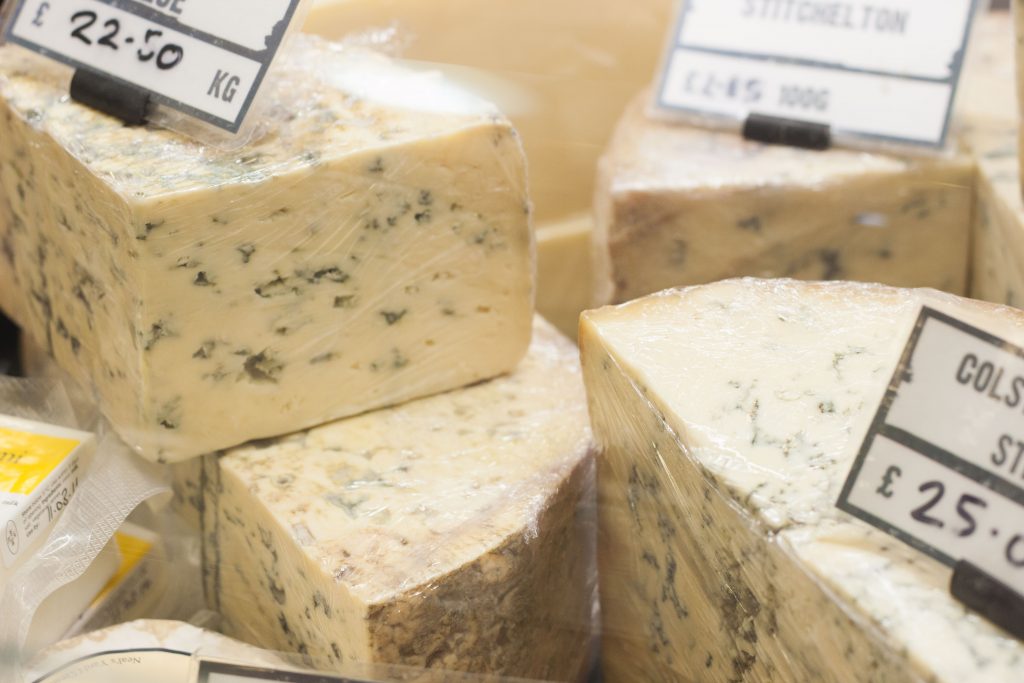
“All three of us are very passionate about high quality food done well,” Joe starts. He heads up the shop part of the operation, with Ross taking on the role of head chef in the kitchen and Liz as their pastry chef. “Source plays an essential role in the supply chain,” he points out. “We’re a link between the producer and the customer; I think we’re a service provider more than a food provider.” And they do provide an excellent service; from fish filleting to meat butchering, not to mention the lovely food you can eat or take home from the cafe. They source from local producers and further afield. “We try to get as much as possible from Somerset and Gloucestershire,” Joe explains. “We buy the best that we can; we look for locality and quality first, and then things like organic.” He pauses for a moment, “For every product, every thing that’s in here, there’s a reason why it’s here. There are so many variables for each different thing, so we take it on a case by case basis.”
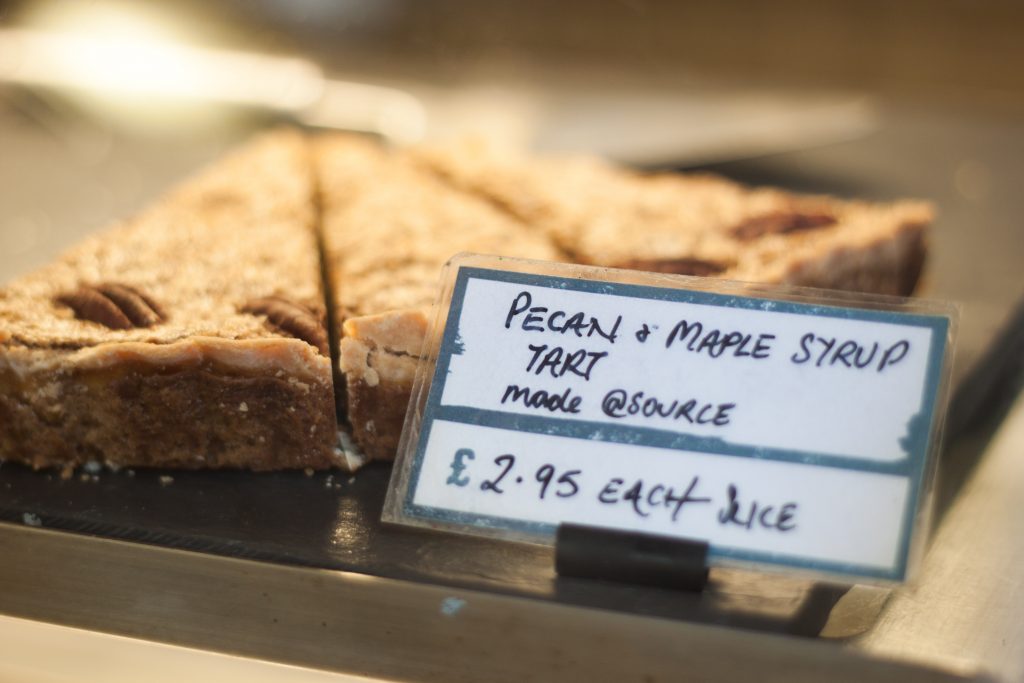
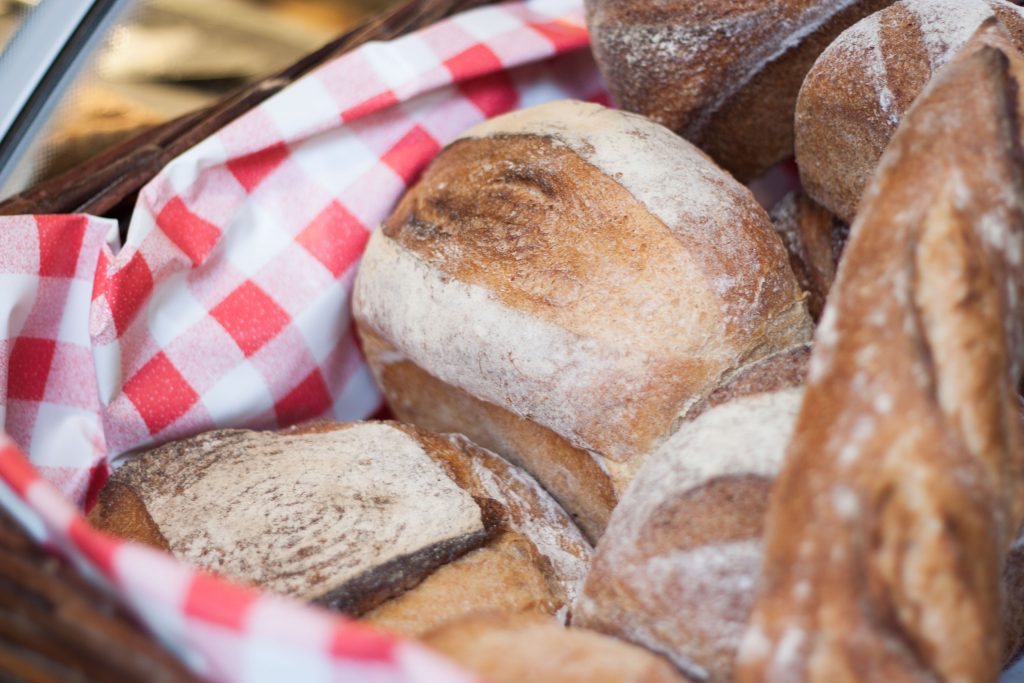
For me, this relationship with suppliers is essential. My friend jokes that I won’t eat meat unless I know the farmer’s name, which is in fact not far from the truth. In Source, I may not know the farmer’s name, but I know for sure that Joe does, and his standards are ones I trust. The shop is full of so many great products, and I ask Joe if he has a favourite. “I really like dealing with pork suppliers, which is a really strange one,” he admits. “They tend to be really lovely people who care about the whole chain. I think it has to do with the nature of the pig; it hoovers up all of the waste, it doesn’t need much husbandry, it can live in a relatively small space, and it can plough and fertilise your field for you. In addition, when it goes to the abattoir, every bit of it is used. So I feel an affinity with pig farmers and pork suppliers, because I think it fits in really nicely within the food chain.” This passion influences the way they source meat, buying whole animals where possible to ensure all parts of the animal are used. This is why you’ll often find more unusual cuts and offal on the Source counter, alongside your more familiar steaks and roasts.
This leads onto a conversation about the importance of good local food, a favourite topic of mine. “The true cost of food in the UK is nothing close to the cost that we’re paying at the moment,” he points out. “Local food is good because it cuts down on food miles, it creates local jobs and benefits the area. Plus you have a freshness element in there as well – if something is picked that day, it can be sold and consumer on that same day, which is excellent for your health.” I ask about the relationship between the cafe and the shop, and how they benefit each other. “The fish, the cheese, the meat, the veg all supply the cafe. It’s a nightmare for the accounting, but it’s great for us,” Joe tells me, with a smile on his face, despite the challenges this must bring. “The chefs can just wander down to the shop and have a conversation with the fishmonger or the butcher, and say ‘Hey I fancy doing this this week,’ and then we all make it happen. It’s extremely seasonal and fresh, and if we’re having a problem shifting something in the shop, we can talk to the chefs and get it on the menu. It’s awesome; I mean there’s obviously waste, but not a lot, and I’m proud of that.” We chat more about the challenges of stocking fresh produce. “As soon as we order products, the delay process starts. We employ different tools such as charcuterie, curing, cooking…. and selling – that’s a good tool!” he finishes, laughing.
They also run several courses at Source, increasing people’s practical skills around food. “About 6 years ago we started doing a fish filleting course,” Joe explains. “It was basically to break down the barrier that British people seem to have with fish. The course is designed to teach the average person who’s a bit interested in fish how to select, buy, prepare and cook your fish; right from the whole fish to putting it in your mouth. It’s superb because it’s just the best fast food imaginable!” His enthusiasm for fish shines through, not surprising given his background as a fishmonger. “We teach a group of 6, with two teachers and it takes 3 hours. You get the flat fish and round fish we teach you on, and we throw the knife in as well. It’s an after school club!”
Well, I’m persuaded.
“A couple of years ago when Paul joined as our butcher, we added the basic butchery course which is along the same lines,” he continues. “We take the bones out of a shoulder of lamb, and the way that Paul has designed it, the skills can be downscaled to a chicken and upscaled to pork and beef. So they’re totally transferrable skills. Then we do a charcuterie course, which is a very science based. You cure your own bacon and make our own sausages, and take them home at the end of the night with a whole head full of figures and science.”
I love the experience of shopping in Source. It’s a small staff team, so I’ve got to know people over time, and always get a nice hello when I go in. In addition, I always learn something new. Whether it’s learning about the problems with salmon farming in Scotland, or discovering a new cut of meat, the staff are without question the most knowledgeable of any shop I’ve been in. Which, for a big food geek like me, is a big bonus. “We have a really good following of really good, loyal customers who come in on a daily basis,” Joe admits. “I know a lot of people’s names and they know mine. It’s really genuinely lovely to see them,” he points out with a big smile. “I’d say that is one of the best things about Source, it’s part of the community. Not everybody can shop here, because we’re a very small shop and we don’t do things in the mass produced way. But I’d say that no matter what your budget, no matter what your take on food, there’s something in Source for you. Come on in and have a look; some things are cheaper than Tescos, some things are not cheaper than Tescos. But when you shop at Source, you get more out of it than an experience shopping in Tescos.”
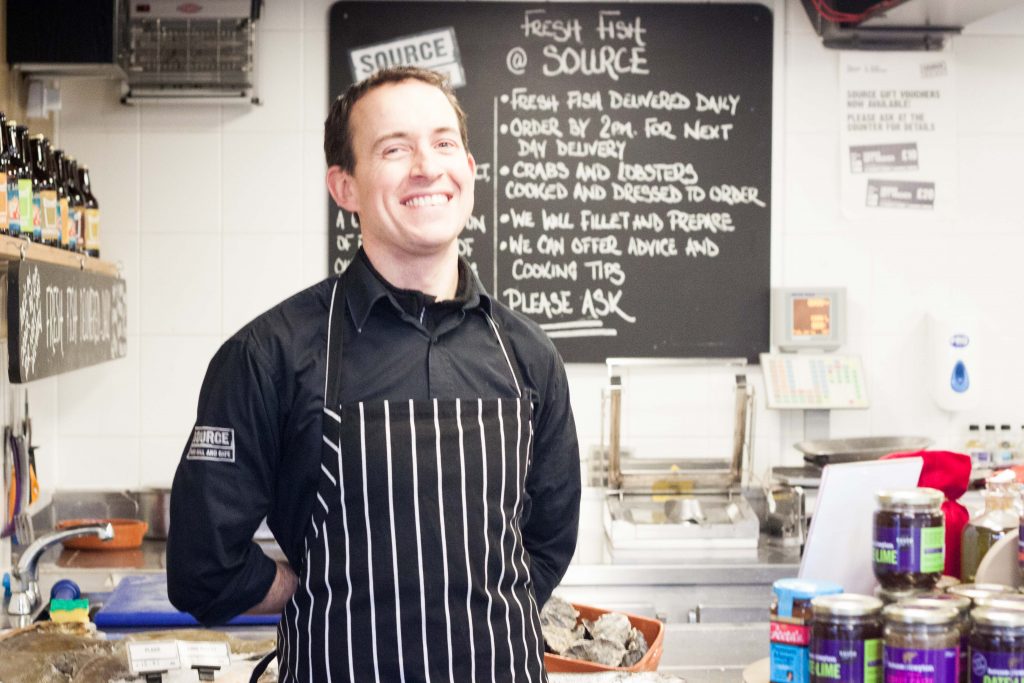
I ask about the future, and where he’d like Source to go. “That’s a big question!” he responds. “We would like to have lots of little Sources all over the place, but it requires a lot of skilled staff to be very dedicated to the cause to keep your eye on waste and things like that; you can’t just find those people everyday. The team we have here are excellent, and we’re very blessed to have them. But it’s taken us a long time to bring these people together so that we’re working really well as a team.” He stops to think for a moment. “So I’m very happy with Source as it is at the moment. We’re going to have a few more events coming up, continue doing our courses, and engaging schools in the whole process of farming and where your food comes. We have beehives on our roof, and Quentin our beekeeper takes the hives into schools to show them the extraction process and has also done candle making. And I’d really like to get more involved in the political side of things; there’s a lot of politics underpinning and undermining what we’re doing, things like the true cost of food. People have a preconceived idea of us and why our food is so expensive. But actually given the bigger picture, it’s actually extremely good value.”
Find out more: http://www.source-food.co.uk
